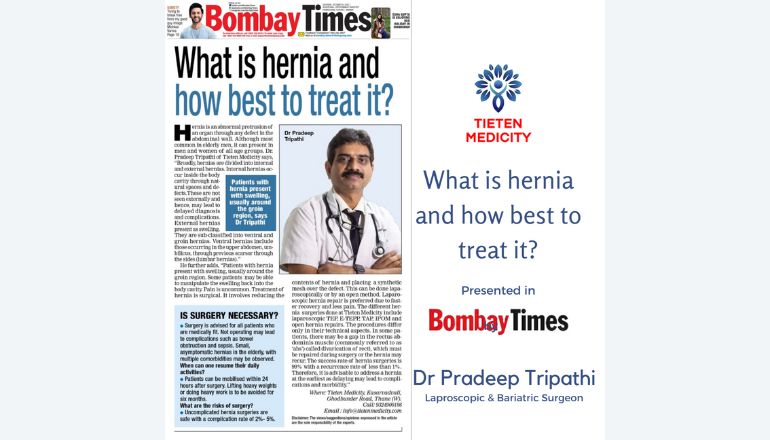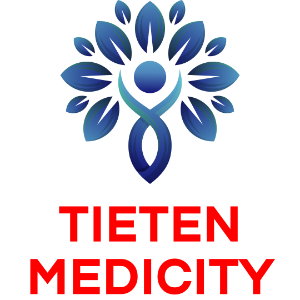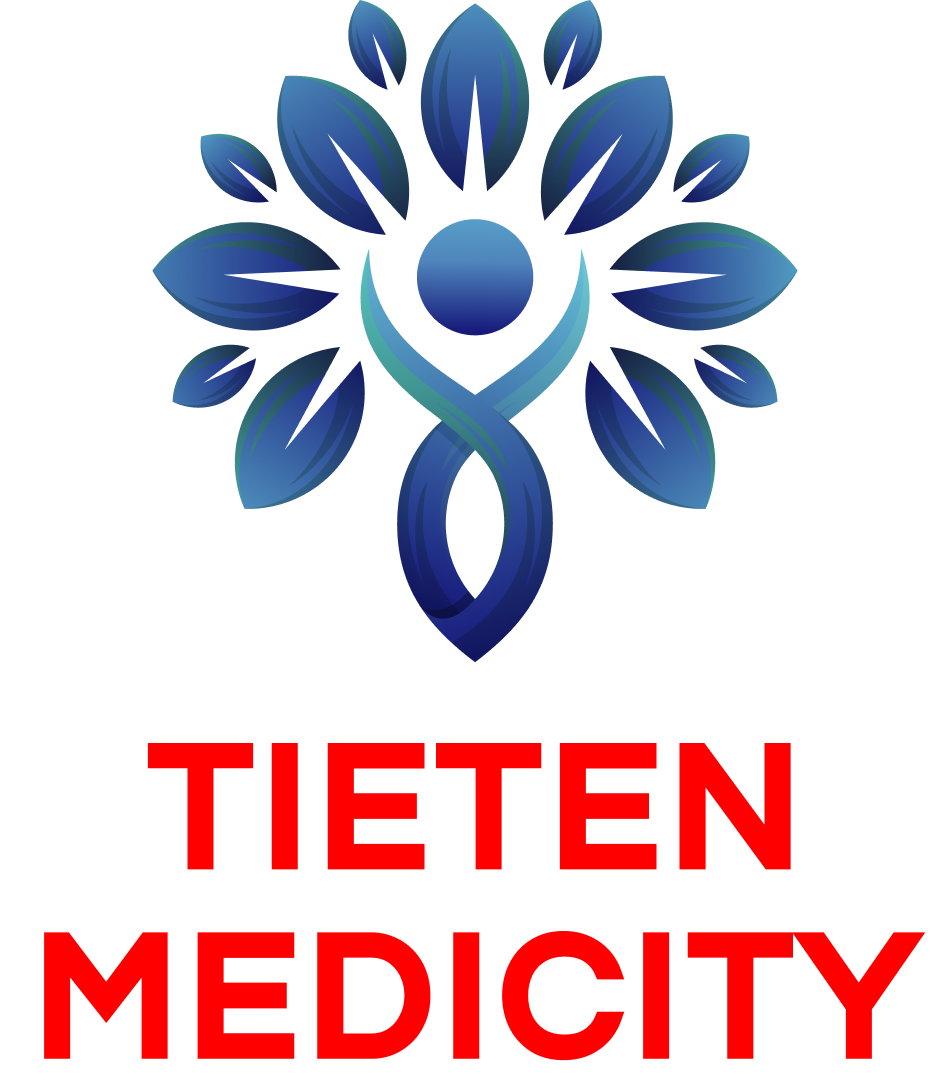
Hernia is an abnormal protrusion of an organ through any defect in the abdominal wall. Although most common in elderly men, it can present in men and women of all age groups. Dr Pradeep Tripathi of Tieten Medicity says, “Broadly, hernias are divided into internal and external hernias. Internal hernias occur inside the body cavity through natural spaces and defects. These are not seen externally and hence, may lead to delayed diagnosis and complications. External hernias present as swelling. They are sub-classified into ventral and groin hernias. Ventral hernias include those occurring in the upper abdomen, umbilicus, through the previous cursor through the sides (lumbar hernias).”
He further adds, “Patients with hernia present with swelling, usually around the groin region. Some patients may be able to manipulate the swelling back into the body cavity. Pain is uncommon. Treatment of hernia is surgical. It involves reducing the contents of hernia and placing a synthetic mesh over the defect. This can be done laparoscopically or by an open method. Laparoscopic hernia repair is preferred due to faster recovery and less pain. The different hernia surgeries done at Tieten Medicity include laparoscopic TEP, E-TEPP, TAP, IPOM and open hernia repairs. The procedures differ only in their technical aspects. In some patients, there may be a gap in the rectus abdominis muscle (commonly referred to as ‘abs) called divarication of reed, which must be repaired during surgery or the hernia may recur. The success rate of hernia surgeries is 99% with a recurrence rate of less than 1%. Therefore, it is advisable to address a hernia at the earliest as delaying may lead to complications and morbidity.”
IS SURGERY NECESSARY?
Surgery is advised for all patients who are medically fit. Not operating may lead to complications such as bowel obstruction and sepsis. Small, asymptomatic hernias in the elderly, with multiple comorbidities may be observed.
When can one resume their daily activities?
Patients can be mobilized within 24 hours after surgery. Lifting heavy weights or doing heavy work is to be avoided for six months.
What are the risks of surgery?
Uncomplicated hernia surgeries are safe with a complication rate of 2%- 5%.
Conclusion:
In conclusion, Dr. Pradeep Tripathi is the best hernia doctor in Thane. People trust him because he’s really good at what he does and he cares a lot about his patients. If you have a hernia in Thane, Dr. Tripathi is the person you should see. He’ll make sure you get the right treatment that fits your needs. Dr. Tripathi doesn’t just treat patients; he treats them like family, with kindness and understanding.
To sum up, Dr. Pradeep Tripathi is the top choice for hernia treatment in Thane. With him, you’re not just getting medical help; you’re getting someone who genuinely cares about making you feel better. So, if you’re dealing with a hernia, trust Dr. Tripathi to guide you through it with expertise and compassion.
For more information contact on 9324900186 or info@tietenmedicity.com
Visit now at www.tietenmedicity.com





